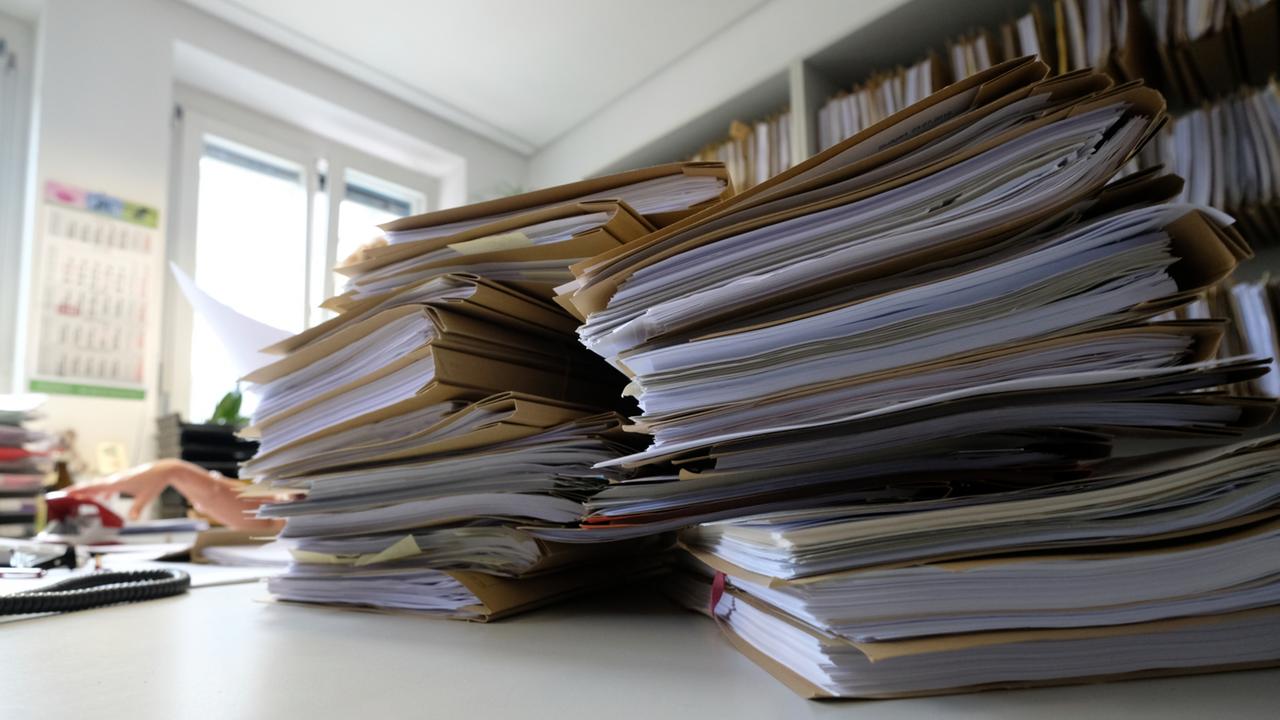There is hardly any problem that the economy complains about more than too much bureaucracy. The federal government wants to counteract this with a relief law. But many entrepreneurs still see high hurdles when it comes to investments.
The smell of fresh wood smells in the workshop of Müller-Zeiner Industrie Verpackungen GmbH in Berlin-Neukölln. In one part of the hall, wood is sawn apart, in other parts pallets and boxes are created. The family business with around 150 employees is also active at four other locations in Berlin, Brandenburg and Bavaria.
Getting the wood wasn't that easy recently, says managing director Gabriele Köstner – and points to bureaucratic hurdles. A European regulation requires companies to ensure that wood from countries outside the EU comes from legal harvesting. “In most cases, such a risk analysis is too complicated for a company our size.”
“Still a step up”
When wood from the EU became scarce in 2021, the company carried out an analysis for wood from Ukraine at great expense in terms of personnel. But no sooner had the import of wood from Ukraine begun than the Russian attack came. And the wood from the attacked country was now suddenly considered “conflict wood”.
“It took until September 2023 before we were allowed to buy wood from Ukraine again,” says Gabriele Köstner, shaking her head. She is particularly annoyed that other EU states have allowed imports again in 2022.
According to Köstner's experience, Germany is particularly strict in the application of European regulations. “It's still being stepped up a notch.” A large part of the bureaucracy in Germany could be minimized if EU laws were implemented at least one-to-one.
Scholz promised improvement
A problem that the federal government has also recognized. When presenting the “Pact for Accelerating Planning, Approval and Implementation” in November, Chancellor Olaf Scholz promised “one-to-one implementation” of EU guidelines in the future.
With the 4th Bureaucracy Relief Act, the traffic light coalition under the leadership of Justice Minister Marco Buschmann is also taking up demands from business: for example, retention periods for receipts will be shortened. Hotels no longer have to require registration forms from guests with German citizenship.
Commitment to climate protection is becoming more difficult
However, the changes do not go far enough for both the large business associations and many entrepreneurs. Köstner finds it particularly problematic, for example, when companies' commitment to environmental and climate protection is made bureaucratically difficult.
She recently found out about this when she tried to drill for geothermal energy. From a certain depth onwards, it must be checked whether an area is suitable for a nuclear repository. “It was about a construction site outside Berlin. A nuclear repository like that isn't very likely.”
Due to the regulations, deeper drilling is often not even considered, even though it is ecologically beneficial, says Köstner. Particularly strange: The new bureaucracy relief law means that the Mining Office no longer has to be consulted for drilling of 400 meters or more, but drilling of 156 meters or more still requires the approval of the Federal Office for Nuclear Safety.
Funding programs fail because of the effort
Daniel Swinka is also familiar with projects that failed because of bureaucratic requirements. He is the technical manager at the company RuLa BRW, which renews truck tires in Königs Wusterhausen, Brandenburg. He has had many negative experiences, especially with funding applications.
These often have long approval times. “Until they are rejected,” says Swinka. Politicians are continually introducing new funding programs. But smaller companies in particular are often unable to meet the conditions.
For example, because when it comes to promoting photovoltaics, at least three offers have to be obtained, which are not so easy to get for large systems. Or because the applications are full of small print. “If you change something here, it not only saves resources in the company, but also in the departments responsible.” This would also save the administration from the “horrendous” processing times, says Swinka.
Habeck relies on practical checks
Less would be more – even when it comes to statistics. In this way, the periods for submitting data could be extended; not all data would then have to be recorded monthly; in many cases, quarterly or annual reports could also be sufficient, according to Swinka's assessment.
Above all, he would like politicians to listen more to practitioners. “Because in the end we have to work with the rules.” Many entrepreneurs therefore rate the so-called practical checks, with which Robert Habeck's Ministry of Economic Affairs wants to find out where bureaucracy is specifically preventing investments, as positive.
Gabriele Köstner has also often made concrete suggestions for reducing bureaucracy. Among other things, she is involved in the Chamber of Commerce and Industry in Berlin. But their main wish for politicians is to show more trust in the economy again. All the bureaucracy and documentation requirements ultimately expressed the state's distrust of its citizens and entrepreneurs. “I just wish there was more trust.”
Hans-Joachim Vieweger, ARD Berlin, tagesschau, March 12, 2024 7:16 p.m





